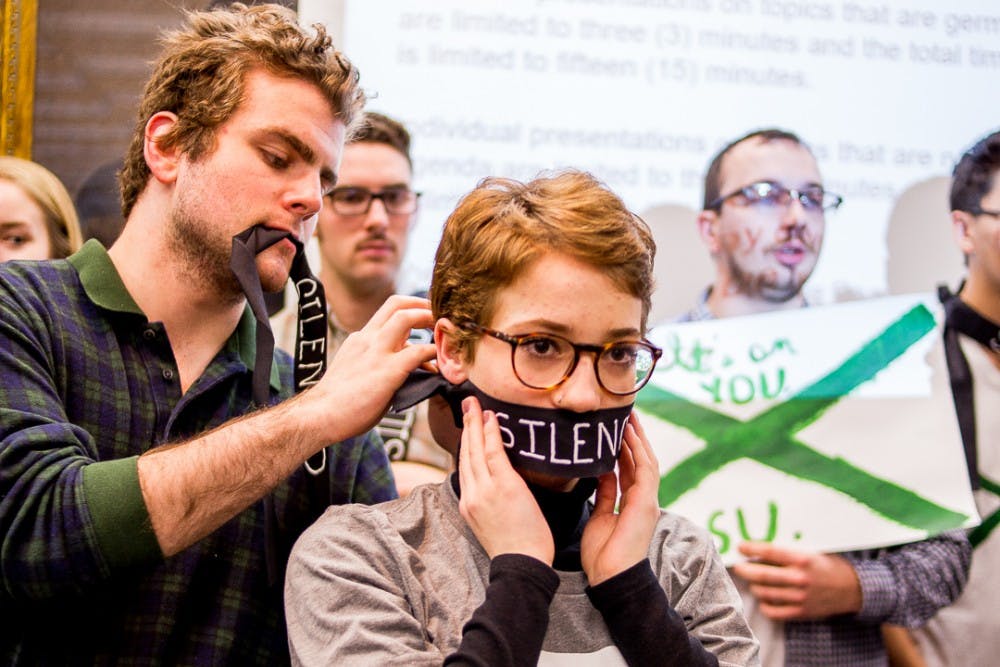According to Michigan law, many of the people who appeared in court for ex-MSU and USA Gymnastics doctor Larry Nassar's sentencing should not have been allowed to give victim impact statements.
But, some courts disagree with the state law from 1985.

According to Michigan law, many of the people who appeared in court for ex-MSU and USA Gymnastics doctor Larry Nassar's sentencing should not have been allowed to give victim impact statements.
But, some courts disagree with the state law from 1985.
Under the Crime Victim's Rights Act, or CVRA, if a victim is still alive, they are the only one allowed to give a victim impact statement, attorney David Thompson said in an email.
“If the victim is deceased, the CVRA creates an order of priority that starts with a deceased’s spouse, then children if there is no spouse, then the victim’s parents if there are no no (sic) spouse or children,” Thompson said. “Then if no parents, a guardian; then if no guardian the grandparents, etc.
“The thing to keep in mind is that as soon as there is one “victim” (e.g., a spouse) no other relations (e.g., children or parents) can come through the door to present impact statements. In other words, the door closes behind the first relation set forth in the CVRA’s priority.”
However, some judges choose to allow people who are not legally victims to give impact statements.
Judge Rosemarie Aquilina allowed 156 people to give victim impact statements at Nassar’s Ingham County sentencing — where he faced seven charges.
“I think it afforded me justice that I wasn’t likely to get. ... My case would have never come to court and I would have never seen that myself,” survivor Morgan McCaul said. “So being able to participate in the process, it provides you closure and it provides you an opportunity to see something happen that you really need to see in order for your healing to occur.”
By limiting who counts as a victim for the impact statement, the law misses people who are also affected, McCaul said.
“(Parents and family) suffer alongside us,” McCaul said. “They see the day to day, they see the hurting and they feel it, too. They were victims just as much as we were in a lot of ways. It helps both sides, because I think it informs a judge, when they’re trying to accord a sentence, providing context and detail of the depths of this crime. But, it also provides healing for the survivors and the survivors’ families themselves.”
Thompson's family was personally impacted by the CVRA.
In 1985, his brother, Matthew Thompson, was killed by a drunk driver. In that case, his parents were allowed to make victim impact statements at the sentencing of the driver.
"The fact is that many people (and especially family members) were impacted by the crime, not just the victim or one subset of family members," Thompson said. "Changing the law would reflect that my grandparents, aunt, and uncle were also victims because they suffered the crime's impacts too - not just my parents. The point of the CVRA was to recognize crime's impacts on the public and make criminal justice more responsive to victims. I believe that giving other family members the statutory right to give impacts statements would further that goal."
Only the state Legislature can make changes to the CVRA.
"I would encourage law enforcement and people involved in legal prosecution to open their minds up to utilizing this in the future,” McCaul said.
Support student media! Please consider donating to The State News and help fund the future of journalism.